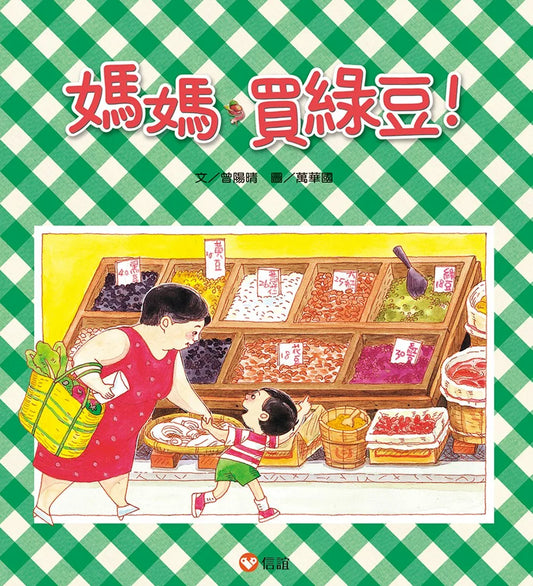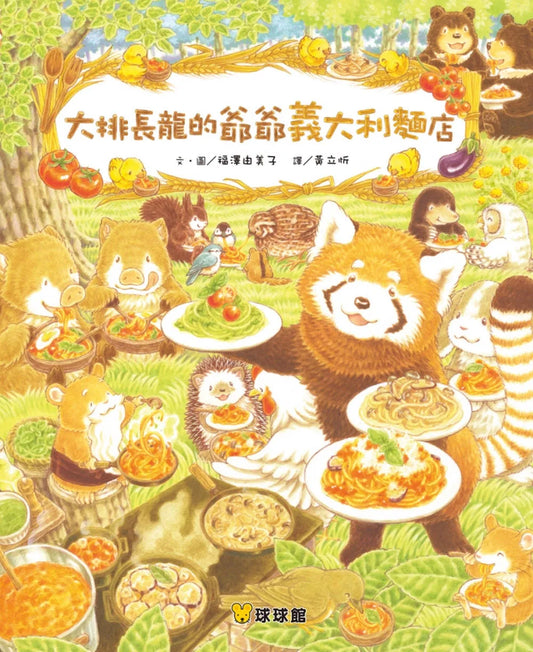Our first Parent Spotlight will feature Joyce! Even though she stopped speaking Chinese when she moved to Canada, she was able to pick it up again in high school. She’s motivated to teach her son about her Chinese culture and language. Joyce also shares with us a wealth of resources (books, websites, blogs, and classes). Let’s take a look!
Meet Joyce!
Hi Joyce! Can you tell us a bit about yourself and your family?
I’m Joyce and my son M is 7 years old. M and my husband were born in Canada and I was born in Hong Kong. We speak 90% Cantonese to M and mainly English to each other.
How was your transition from Hong Kong to Vancouver?
I moved to Vancouver when I was 8. We eventually settled in an area where there wasn’t much Chinese being spoken until I reached high school. Before those secondary years, I mainly spoke Chinese with my parents, family or family friends.
Did you keep up with reading and writing Chinese?
As with many other immigrant families, the focus was on assimilating to Canada rather than keeping in touch with our roots and culture in HK. I pretty much stopped writing or reading Chinese since grade 2 and only restarted when I was about to enter university.
What was your motivation to restart Chinese again?
When I moved to Canada, I discovered a knack for learning languages. It was easy for me to understand English and French and that gave me the confidence to pick up Chinese again, especially after finding Cantonese and Mandarin speaking friends in high school. Taking up Chinese again allowed me to make many Chinese speaking friends, strengthen my bond with my family overseas, and become closer with my in-laws.
“Taking up Chinese again allowed me to make many Chinese speaking friends, strengthen my bond with my family overseas and become closer with my in-laws.”
Did your parents enforce Chinese at home?
Even though my parents never forced me to continue with Cantonese, I wanted the connection to my heritage and roots. I was very aware of why we moved in the first place and preserving what we had was really important to me. It also made me realize that knowledge is power. The more you know, the better off you are.
Home Environment
How much Cantonese do you speak as a family?
At home, we speak to M solely in Cantonese. We try to incorporate the language as much as possible.
What family activities do you do in Cantonese?
When it’s tv time, we try to get M to watch cartoons in Cantonese. If it’s a movie where Cantonese is available, we’ll play it on that track. Right now I’ve also asked a friend to order the Butt Detective game (Nintendo Switch) in traditional Chinese for me.
We also own several board games in traditional Chinese and play them when we have time. Popular games include the Butt Detective game, wet market game and the Ding! Food is Ready game. M has story time each night from each of us so I will always read something in Cantonese while dad can read in either Cantonese or English.
The Beginning …
Did you always want to teach your son Chinese?
We had always talked about how we wanted to raise our kids even before we got engaged. My husband was brought up with Cantonese being the default language. We ultimately decided that our children would be brought up speaking Cantonese first. We’ve spoken Cantonese to M since the first day he was born!
“At the beginning, we were not used to speaking Cantonese … It also sounded very odd … since we didn’t speak Cantonese in the house ...”
How was it at the beginning?
At the beginning, we were not used to speaking Cantonese and had to adjust a lot of our vocabulary when M was born. It also sounded very odd to us since we didn’t speak Cantonese in the house up until that point.
What are some reasons you want your son to learn Chinese?
When I traveled to Asia after a 10 year absence, I found I had no problems navigating the MTR or subway, while my husband and friends struggled to know which way to exit and where to go. I want the same for my son - extra opportunities to make social connections and an easier path to navigate in life, an “extra tool in his belt” so to speak.
Have your goals changed over the years?
My original goals for M were to have him be fluent in speaking, reading and writing. These expectations are definitely relaxing as he gets older and English takes hold and we are strapped for time due to work, home and other activities.
And Now …
What do you focus on now?
As for areas of focus we always go with day-to-day stuff like food ordering, supermarket terminology, anything conversational and then work towards culture, then history (like idioms).
In addition to eating and shopping in Chinatown once in a while, I have taken M to the Chinatown Storytelling Centre and Chinese Canadian Museum so he could learn more about Chinese history and culture. I have attempted to take him to the HK Fair but it was so popular he could not get in! I’m hopeful we’ll be able to get in next year. For now, our sights are set on the night market before they close in the fall.
Do you include Chinese in your regular routine?
M is enrolled in a Mandarin bilingual program in his school district. During fall and spring, he attends an in-person Cantonese Chinese school. He participates in an online Cantonese reading group every other night and has a reading buddy he e-meets once a week. We try to sneak in some additional practice here and there and dedicate our Sundays to only Chinese radio whenever we are on the road.
Were there any obstacles to teaching M Chinese?
The biggest obstacle is how easy it was for M to learn to read English. M was an early reader in English because he figured out phonics very early on. As a result he prefers reading English books as he can read them without help.
I’m hoping he still has a love for the manga we have at home as that was one of the only things I had growing up that kept me tied to reading Chinese. The nightly reading group M is in has been helpful in reinforcing the social aspect of speaking Cantonese. There is a lack of kids (let alone Cantonese speaking kids) in our neighbourhood so it doesn’t help.
I’m also not sure what to do once the teen years hit. There doesn’t seem to be lots of support materials for teens learning Cantonese and I am just hoping that manga will continue to hold M’s interest as he grows.
Was there an “aha!” moment?
M loves stories so the RnR classes with Eveline got his attention when he initially took them. As he gets older, I think learning Cantonese with friends or peers will become more important. The kids truly motivate each other once they’ve passed the age where they can be forced to learn something.
Proud Moments
“His Cantonese is not perfect but it definitely validates everything we’ve done in our Cantonese journey up until this point.”
Proud Moment #1:
When M was younger and learning from Sage books, we found a file with all the Sage characters for each level and printed them out to test him and my sister and cousin-in-laws. It was funny watching all these millennials fail at reading the characters while my son could identify them. Allegedly all of them were “top scholars” in their respective Chinese schools growing up lol.
Proud Moment #2:
Sometimes M will listen to the Food Superman idioms tablet that I got him and he will use the idiom in a situation. Even if it’s wrong, I am secretly proud he is trying to learn from the stories but in typical tiger mom fashion I will tell him he needs to re-listen so he gets it right.
Proud Moment #3:
And, after many years, M still has deep love for 西遊記 and I love it whenever he asks us to play along with him. He is born a Canadian but his taste buds are definitely Hong Kong because he loves his 油炸鬼 and 茶餐廳 foods like 菠蘿包.

Pretend Play: Journey to the West
Proud Moment #4:
A couple of friends from HK visited this summer and it was just great to see M play along with their kids without any language barriers. His Cantonese is not perfect but it definitely validates everything we’ve done in our Cantonese journey up until this point.
Recommendations
Do you have any recommended classes?
Classes that have helped along the way include RnR music classes, with Ka Foo, Miss Cherry’s drawing classes and online and in-person events with Rhythm ‘N’ Rhyme. On and off we’ve tried Little Bean Cantonese magazines as well and are involved with the Little Readers Club on Facebook. We loved the recent in-person storytelling session from 肥哥哥 too. We’re also signed up to meet Locy Lee in-person in September!
What are your favourite books to read together with your child?
The Butt Detective, Long Queue and the Bunny 兔老大 series are on regular rotation in our household. M likes humour in his books and those are usually his picks. The reading difficulty is not super hard and the illustrations in the long queue series are adorable and incredibly detailed.
M’s two favourite non-series books are 媽媽買綠豆 and 熊貓圓圓大冒險. We purchased the chameleon reading pen a long time ago and had me and my mom record the audio. M loved to use the pen when he was younger to listen to the stories and have now memorized them by heart.
Do you have other Chinese book recommendations?
M loves manga so one of the bookshelves is stocked almost entirely with Doraemon, Pokemon, and other manga.
Other favourites are:
- the Butt Detective books
- the Wild Cats Crew
- Long Queue
- Gingerbread Man science, and
- TRex series by Tatsuya Miyanishi
We try to buy used from FB Marketplace but also purchase from Yuto and Kozzi. When we go to the library we also borrow some Chinese books. Our car is stocked with a box of simple toys and reading materials. I always sneak in several Chinese books to make sure he grabs them.
We have also downloaded Cantonese content (episodes of Butt Detective, storybooks) on his Mini Yoto player (an audio player) that he can listen to at-home or on-the-go. It’s come in really handy when we’re travelling or camping. I also recently downloaded some songs from the movie Mama’s Affair (阿媽有咗第二個) and put it on a Yoto card. It’s more for me but maybe he will like it too?
Reading Journey to the West while listening to something else on his Yoto Mini
Final Tips for Parents
Do you have any advice for parents who are undecided about starting Chinese at home?
“There’s really no right or wrong … set small goals and see how your child responds. Taking that first step and making a habit out of it is what will ultimately make it a success vs failure.”
I would say that every family is different and ultimately you decide on what to do with your kids. There’s really no right or wrong. But if you do want to teach and are limited in what you can do, set small goals and see how your child responds. Taking that first step and making a habit out of it is what will ultimately make it a success vs failure.
What are some easy steps to start?
- Play Scavenger hunts with your child:
- Hiking: download the nature bingo sheet online (from Dr. Betty Choi)
- Dim sum game: for when you eat at a Chinese restaurant
- devote 10 minutes daily to watching something age-appropriate with your child in Cantonese and go from there.
You can also let your kids take the lead and see what they’re interested in before diving in. If they’re into Pokemon, you can try to draw Pokemon together and look up their Chinese names.
For me I’ve been lucky enough to have the time and resources to help my child learn the language, as not everyone is in the same boat. There are lots of resources online that are super helpful for parents. The facebook groups Cantonese Parents, Cantonese Parents in BC, Little Readers Club and Vancouver Chinese Children’s Book Swap have all been super helpful for me.

On our long hike to Joffre Lakes, we played nature bingo downloaded from Dr. Betty Choi’s site
Are there any other pieces of advice you’d like to share with us?
I’ve found incorporating Cantonese in special outings such as grocery shopping or hiking works really well at this age. At the bakery I sometimes ask M to read out the names of the buns he wants, at the grocery store I ask him to read some of the labels in the aisles, during hiking I ask him to spot out things on a nature bingo card and to say out loud in Cantonese what it is.
At the food court in the Asian malls I like to make him order something like a lemon tea on his own. I’ve made a bingo card for the night market I’d like to test out soon as well.
These real life experiences help with being independent while testing his skills in Cantonese and making it fun.

















